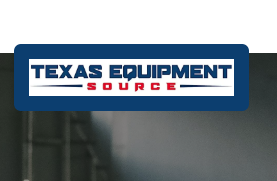Rhinoplasty surgery is often associated with cosmetic enhancement, but its significance goes far beyond improving appearance. Many individuals seek rhinoplasty not only to change the shape of their nose but primarily to address important medical conditions that affect breathing, function, and overall quality of life. Understanding the medical benefits of rhinoplasty is essential for anyone considering this procedure.
Rhinoplasty surgery in Riyadh offers comprehensive solutions for patients facing both aesthetic and medical challenges related to their nose. This article explores the medical reasons behind rhinoplasty, the procedure’s health benefits, and what patients can expect from the journey—all while highlighting key considerations for those seeking functional improvements.
What Is Rhinoplasty Surgery for Medical Reasons?
Rhinoplasty for medical reasons focuses on correcting structural issues within the nose that impair breathing or cause chronic discomfort. These include deformities, injuries, or congenital abnormalities that interfere with the nasal airway or sinonasal function.
Common Medical Conditions Addressed by Rhinoplasty
- Deviated Septum: A misalignment of the nasal septum can block airflow, causing difficulty breathing, snoring, or sleep apnea.
- Nasal Valve Collapse: Weakness or narrowing of the internal nasal valve leads to obstruction and reduced airflow.
- Chronic Sinusitis: Structural irregularities exacerbate sinus infections and drainage problems.
- Nasal Trauma or Injury: Broken or injured nasal bones or cartilage often require correction for both function and aesthetics.
- Congenital Abnormalities: Birth defects affecting nasal structure sometimes cause lifelong breathing difficulties.
Correcting these issues through rhinoplasty can significantly improve nasal function, enhancing oxygen intake and overall health.
How Rhinoplasty Surgery in Riyadh Addresses Medical Concerns
Riyadh has become a prominent center for rhinoplasty that integrates advanced surgical expertise and the latest technology to treat medical nasal issues effectively. Surgeons prioritize restoring nasal function while maintaining or enhancing natural appearance, creating a balance between health and aesthetics.
Surgical Techniques Used
Surgeons employ various techniques depending on the medical problem:
- Septoplasty: Straightening the nasal septum to open breathing passages.
- Turbinate Reduction: Reducing swollen turbinates to improve airflow.
- Nasal Valve Repair: Reinforcing weak cartilage or muscles supporting the nasal valve.
- Reconstructive Rhinoplasty: Correcting trauma or congenital deformities.
This tailored approach helps patients regain normal breathing ability without compromising cosmetic outcomes.
The Rhinoplasty Procedure: What Patients Can Expect
Initial Consultation and Assessment
A thorough examination, including nasal airflow tests and imaging, informs the diagnosis and surgical plan. Surgeons discuss symptoms, expectations, and the best treatment options.
Preoperative Preparations
Patients receive guidance on medications, lifestyle adjustments, and what to expect on surgery day to ensure optimal results.
Surgery Day
Performed under anesthesia, the surgeon carefully reshapes nasal structures to correct functional defects. Procedures vary but are designed to minimize trauma and promote healing.
Postoperative Care and Recovery
Patients learn how to care for their nose, manage discomfort, and recognize signs of complications. Follow-up visits monitor healing progress.
Long-Term Results
Functional improvements often occur immediately or soon after recovery, while subtle changes in appearance continue to evolve over several months.
Benefits of Rhinoplasty for Medical Reasons
- Improved Breathing and Sleep Quality: Correcting nasal obstructions enhances airflow, reducing snoring and sleep apnea symptoms.
- Enhanced Sinus Health: Structural corrections alleviate chronic sinus issues and reduce infections.
- Boosted Confidence: Even when performed primarily for function, patients often appreciate improved nasal appearance.
- Better Overall Health: Easier breathing supports cardiovascular and respiratory function.
- Minimized Future Complications: Addressing issues early can prevent worsening conditions or additional surgeries.
Why Choose Rhinoplasty Surgery in Riyadh?
Riyadh offers access to experienced surgeons whose expertise extends beyond aesthetics into functional rhinoplasty. The city’s healthcare infrastructure supports patient safety and recovery with culturally sensitive care adapted to individual needs. Multilingual teams and personalized support further enhance patient comfort and understanding.
Tips for Preparing for Rhinoplasty for Medical Reasons
- Ensure your surgeon conducts a detailed evaluation specific to your breathing and nasal issues.
- Discuss all symptoms openly, including related sleep or sinus problems.
- Follow all preoperative instructions carefully to reduce surgical risks.
- Plan for adequate recovery time and adherence to postoperative care.
- Seek clinics offering comprehensive functional rhinoplasty with proven outcomes.
Frequently Asked Questions
Can rhinoplasty surgery fix breathing problems caused by a deviated septum?
Absolutely, rhinoplasty combined with septoplasty is the primary treatment to realign the septum and improve nasal airflow, alleviating breathing difficulties.
Is rhinoplasty for medical reasons different from cosmetic rhinoplasty?
While the surgical approach may overlap, medical rhinoplasty focuses mainly on restoring nasal function, often with appearance improvements as a secondary benefit.
How long is the recovery period after medical rhinoplasty?
Recovery varies but generally involves initial healing within a couple of weeks and ongoing improvement in function and appearance over several months.
Will insurance cover rhinoplasty if it is for medical reasons?
Coverage depends on the insurer and region, but medically necessary rhinoplasty often qualifies for insurance reimbursement when breathing impairment is documented.
Are the results of rhinoplasty for medical reasons permanent?
Yes, when performed correctly, rhinoplasty offers long-lasting improvements in nasal function, though natural aging and trauma can affect results over time.








0 Comments